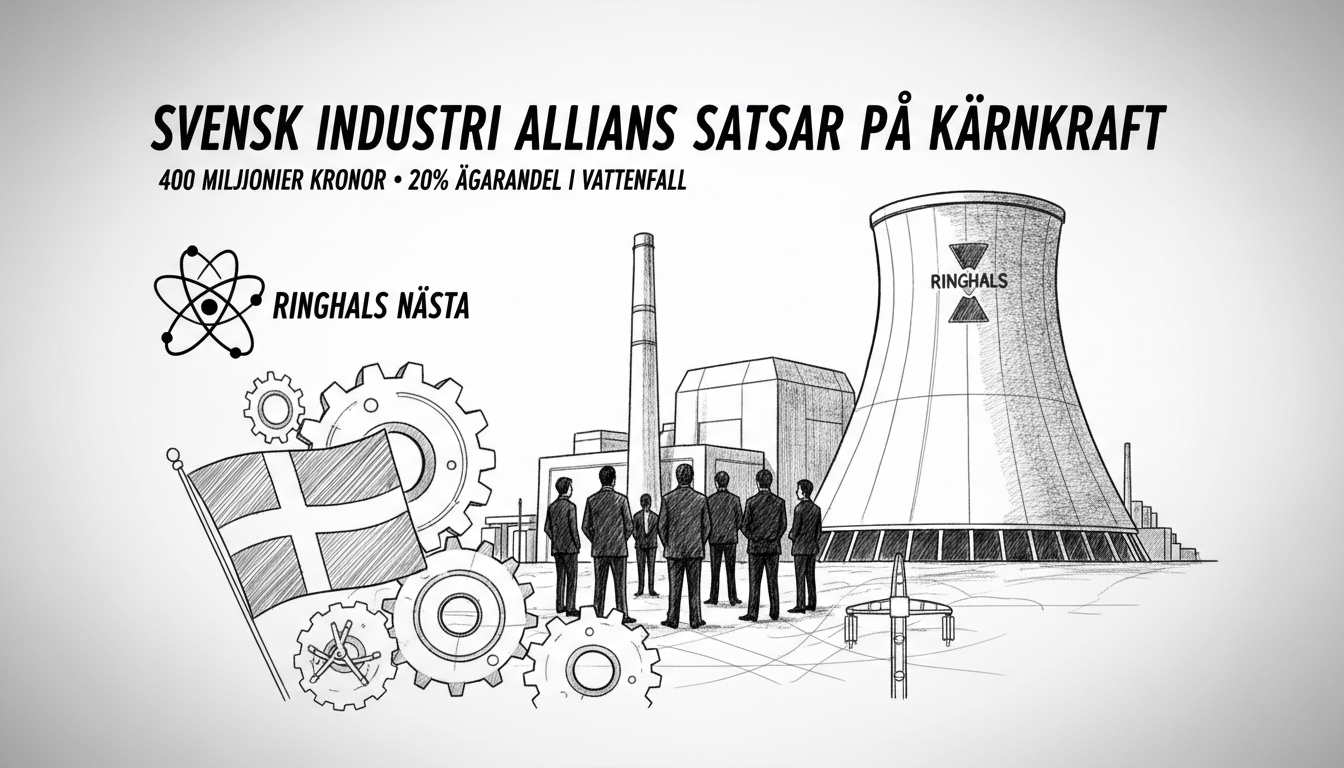A powerful consortium of Swedish industrial giants is taking concrete steps toward new nuclear energy development. The industry collaboration called Industrikraft has signed agreements to acquire partial ownership in Vattenfall's newly formed nuclear power company. This move represents a significant shift in Sweden's energy landscape.
Industrikraft will invest 400 million Swedish kronor into the project. The investment gives the industrial group a 20 percent ownership stake in Videberg Kraft AB. This nuclear power company was recently established by state-owned energy giant Vattenfall specifically for new nuclear development at the Ringhals site.
Tom Erixon, chairman of Industrikraft and CEO of Alfa Laval, explained the strategic importance in a statement. He said industry partners bring more than just financial resources. They contribute project management expertise and technical capabilities that complement Vattenfall's nuclear experience.
The participation of major industrial players signals strong private sector confidence in nuclear power's future in Sweden. These companies represent energy-intensive industries that require reliable, carbon-free power for their long-term operations. Their involvement suggests they view nuclear energy as essential for maintaining Sweden's industrial competitiveness while meeting climate goals.
This development follows earlier announcements about Vattenfall's plans to create a separate nuclear power company. The utility had indicated it would bring industrial partners into the venture as part owners. The Swedish government has also stated its intention to take an ownership position in the company, creating a public-private partnership model for nuclear development.
Industrikraft's membership includes some of Sweden's most prominent industrial corporations. The consortium includes ABB, Alfa Laval, Boliden, Hitachi Energy, Höganäs AB, SSAB, Saab, Stora Enso, and the Volvo Group. These companies span multiple sectors including manufacturing, mining, automotive, and defense.
Sweden's nuclear energy policy has undergone several transformations over recent decades. The country previously planned to phase out nuclear power entirely. Changing energy security concerns and climate objectives have prompted a policy reversal. The current government now actively supports nuclear power development as part of Sweden's transition away from fossil fuels.
The investment comes at a crucial time for European energy security. Many countries are reevaluating their energy mixes following geopolitical tensions and supply disruptions. Nuclear power offers baseload electricity without carbon emissions, making it attractive for both climate and energy security reasons.
What does this mean for Sweden's energy future? The substantial industrial investment suggests strong confidence in nuclear power's economic viability. It also indicates that major energy consumers want direct involvement in securing their future power supply. This model could set a precedent for other countries considering new nuclear projects.
The next steps will involve detailed planning and regulatory approvals for the proposed new reactors at Ringhals. The site already hosts existing nuclear facilities, which may streamline the development process. The partnership between Vattenfall, industrial companies, and the government creates a powerful coalition to advance Sweden's nuclear ambitions.

